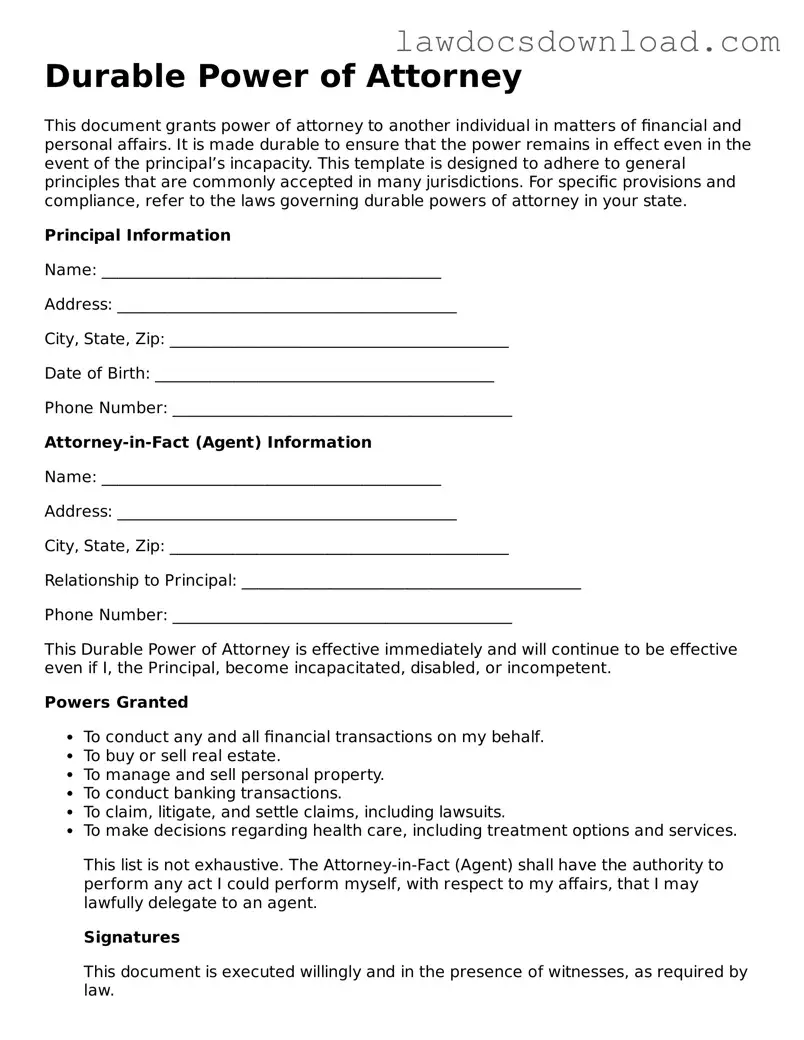Durable Power of Attorney
This document grants power of attorney to another individual in matters of financial and personal affairs. It is made durable to ensure that the power remains in effect even in the event of the principal’s incapacity. This template is designed to adhere to general principles that are commonly accepted in many jurisdictions. For specific provisions and compliance, refer to the laws governing durable powers of attorney in your state.
Principal Information
Name: ___________________________________________
Address: ___________________________________________
City, State, Zip: ___________________________________________
Date of Birth: ___________________________________________
Phone Number: ___________________________________________
Attorney-in-Fact (Agent) Information
Name: ___________________________________________
Address: ___________________________________________
City, State, Zip: ___________________________________________
Relationship to Principal: ___________________________________________
Phone Number: ___________________________________________
This Durable Power of Attorney is effective immediately and will continue to be effective even if I, the Principal, become incapacitated, disabled, or incompetent.
Powers Granted
- To conduct any and all financial transactions on my behalf.
- To buy or sell real estate.
- To manage and sell personal property.
- To conduct banking transactions.
- To claim, litigate, and settle claims, including lawsuits.
- To make decisions regarding health care, including treatment options and services.
This list is not exhaustive. The Attorney-in-Fact (Agent) shall have the authority to perform any act I could perform myself, with respect to my affairs, that I may lawfully delegate to an agent.
Signatures
This document is executed willingly and in the presence of witnesses, as required by law.
Principal’s Signature: ______________________________________ Date: ________________
Agent’s Signature: __________________________________________ Date: ________________
Witness #1 Signature: _______________________________________ Date: ________________
Printed Name: ___________________________________________
Witness #2 Signature: _______________________________________ Date: ________________
Printed Name: ___________________________________________
Notarization (if required by state law or desired by the Principal):
This document was acknowledged before me on (date) ____________________ by (name of Principal) ___________________________ and (name of Agent) ___________________________.
_________________________________________________________
Signature of Notary Public
My commission expires: ___________________

